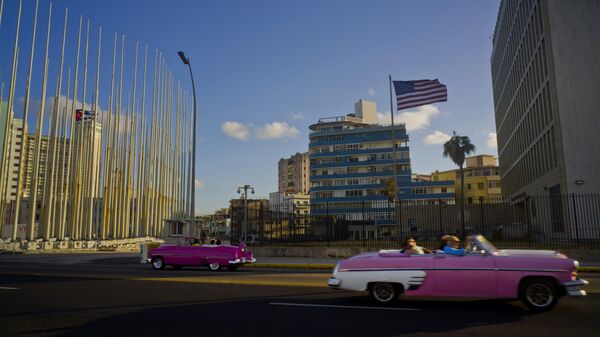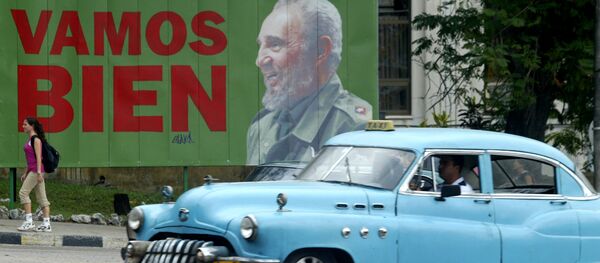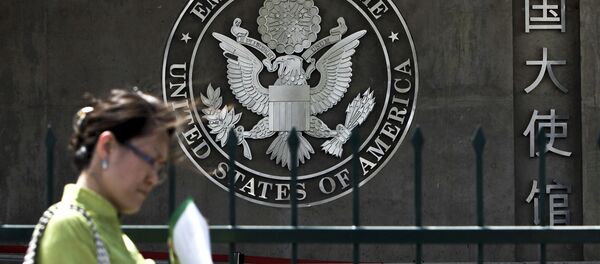Deputy Director General of Radio Habana Cuba Pedro Martínez told Sputnik that Mike Pompeo's statement "demonstrates the interest of the US government in tightening the island's blockade with a thorough review of the rules of former US President Bill Clinton".
Section III of the Law was suspended more than 21 years ago. It establishes that any company, whether American orfrom any other country, which has a business relationship with Cuba, may be prosecuted. The same applies to the heads of such companies. The sanctions also apply to any vessel or aircraft that may be on the island, which means that foreign companies must choose between trade with Cuba and trade with the United States. The choice is obvious, since the US market is much larger.
"This is a way to further tighten the nuts on the blockade of Cuba and prevent the development of the island, the arrival of tourists, the investments of investors… and this is not accidental," Martínez said.
According to the professor, the 45-day extension of the law means that the US government has changed tactics. Instead of considering possible claims against people who invest in Cuban business every six months, as it has been done for more than 20 years, it will now do it more often, every 45 days.
"Obviously, this will have a direct effect on the employment of Cubans who receive wages from foreign firms", López-Levy said. According to the political scientist "As long as Cuba opens, the United States closes even more".
An important part of Section III permits lawsuits in US courts against investors regarding what the law recognizes as "stolen property". In this case, we are talking about any property left on the island by any Cuban citizen, even before obtaining US citizenship.
"This is how this property becomes American. This is an overt fabrication and legal contradiction that American prosecutors themselves admit when discussing the so-called Helms-Burton Act", the professor recalled.
READ MORE: Sonic 'Attacks' on American Embassy Continue to Drive Wedge Between US and Cuba
However, the most striking aspect of this law is how it affects the interests of the allied countries. "We are talking about European, Canadian, Japanese or Latin American investors who comply with the laws of their country, Cuban laws and international law and operate in Cuban jurisdiction, in which the US courts have no legal authority. But the US still threatens them," López-Levy noted.
According to Cuban professor, this manoeuvre is not accidental. The 2020 presidential election puts pressure on the Trump administration, especially from Florida, and this reduction in the duration of the Helms-Burton Act can serve as a growth medium for the lobbies of the Cuban-American community in this state.
"All this is also necessary to understand how much Trump needs the votes of Florida, Trump's rating in the polls… They are ready to destroy relations with the allies at the cost of winning the elections", the political scientist concluded.
Views and opinions expressed in this article are those of the contributors and do not necessarily reflect those of Sputnik.





